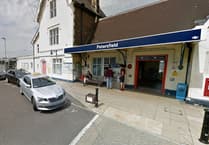Travelodge, one of the UK’s largest hotel brands, has unveiled hopes to build a new hotel in Farnham.
The company already operates 21 hotels in Surrey and hopes to nearly double this number by opening another ten hotels.
It has already contacted local authorities, including Waverley Borough Council, proposing a joint development partnership that it says could support regeneration and stimulate further growth in the area.
Target locations include: Farnham, Byfleet, Woking, Wokingham, Esher/Molesey, Cobham, Epsom, Guildford, Godalming and Reigate.
Travelodge says the expansion programme could create 275 new jobs and represent a multi-million pound investment for third-party investors, with a potential investment of around £3 billion and more than 9,000 new jobs.
In 2022, Travelodge opened six new hotels nationally, three of which were Local Authority partnerships with two hotels located in London at Docklands and Wimbledon and the third hotel situated in Braintree.
The group is also currently on site with construction of two further Travelodge hotels being delivered in direct partnership with Local Authorities in Rotherham and Colchester.
These bespoke agreements have had unique funding structures, all of which have enabled Local Authorities to utilise their existing assets, create jobs, generate income, and help to regenerate brownfield land in strategically important locations.
Some of the new Travelodge hotels in this programme have been built on surplus local authority land, with the funding provided either through the Local Authority’s internal resource or via low-cost funding from the Public Works Loan Board or third party resources.
Upon completion of the hotel development, local authorities have the choice of either retaining ownership of the hotel and receiving an annual rent into the council’s revenue budget or selling the hotel with Travelodge as its operator.
The two recent London Travelodge hotel openings at Docklands and Wimbledon as well as Colchester were lease-wrapper deals, also known as income-strip deals. Under this structure, the council takes a headlease, with Travelodge being the undertenant. The rent that the council pays is lower than the rent it receives from Travelodge - with an annual profit rent for a 30-plus year period.
The councils' covenant strength enables the developer to sell the (council) leasehold investment to an institutional, long-income fund at a much lower investment yield than a lease to Travelodge would achieve. This generates a higher end development value, enabling the development to proceed.
This kind of structure enables developments to take place which otherwise would not be financially-viable and therefore delivers new town centre regeneration which would not otherwise happen.
Steve Bennett, Travelodge chief property and development officer, said: “In the current climate, Local Authorities are under extreme pressure to invest in their economy and support regeneration projects. This is why we have written to eight Local Authorities across Surrey to offer our support as we have a requirement to nearly double our Surrey portfolio with a further ten Travelodge hotels across the region.
"Our target locations include: Guildford, Woking and Epsom. This expansion programme could represent a multi-million investment for third party investors and create 275 new jobs. In addition, our research shows that, on average, Travelodge customers will spend at least double their room rate with local businesses during their stay; this can be an annual, multi-million pound boost into each local economy.
“We have a proven track record of working with 25 forward-thinking Local Authorities across the UK from Ashford to Stirling. Our effective, innovative co-partnership development deals are spearheading regional economic growth and providing a solid long-term revenue stream.
“Britain is now a nation of budget travellers, with more of us choosing to stay in budget hotels than any other hotel type and this trend is set to grow, which is why we are looking to expand our UK hotel network with a further 300 hotels. Adding a Travelodge hotel can be a catalyst to attract new businesses to support regeneration, bring vacant buildings back into economic use as well as attracting thousands of new overnight visitors to the area and revitalising High Streets.
"In addition, our research shows that, on average, Travelodge customers will spend at least double their room rate with local businesses during their stay; this can be an annual, multi-million pound boost into the local economy.”
The Herald has approached Waverley Borough Council for a comment.




